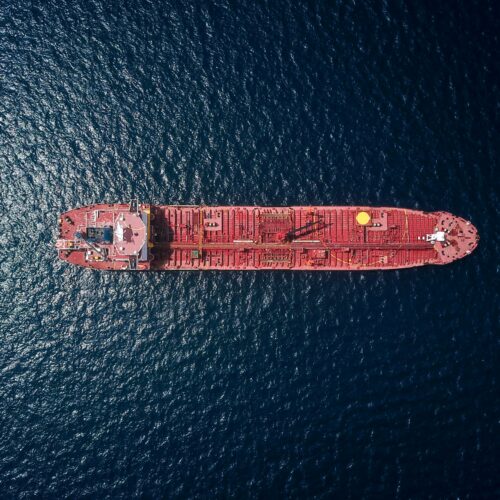Press Release – Fatal accident at Işıksan shipyard in İzmir
Gas Exposure Claims One Life
On 31 August, an accident occurred at IŞIKSAN ship recycling yard in İzmir, Aliağa during the dismantling operations of the Bideford Dolphin, a Bermuda-flagged floating oil platform formerly owned by Fred Olsen & Co. The incident took place onboard the offshore unit, leading to the exposure of multiple workers to gas.
According to information gathered by the NGO Shipbreaking Platform, four workers were directly affected by the gas exposure. Tragically, one of them, İbrahim Karakaya, lost his life. The other three workers were discharged from the hospital late last week. İbrahim Karakaya was working for a subcontracting company charged with removing materials and furniture from the oil platform. IŞIKSAN, however, has a duty of care and responsibility to ensure that all safety standards are met by all parties operating at their yard. Additionally, six workers directly employed by IŞIKSAN who intervened to assist their colleagues also sought medical attention.
“This accident could and should have been avoided. Dismantling a pressurised container in a confined space is not recommended from a health and safety perspective and should only have been done under supervision, following a comprehensive risk assessment. It seems no such assessment was conducted”, states Prof. Dr. Alp Ergör from the İzmir Medical Chamber.
“There was no Occupational Health and Safety personnel present at the scene, and essential equipment, including gas masks, was not provided. Supervision must be thorough, conducted at every step to ensure the safety of the workers. We feel pain and anger for the loss of our fellow worker. This incident highlights the struggle and sustained efforts needed to ensure safe and decent working conditions at the shipbreaking yards”, adds Sonay Tezcan from the Workers' Platform of the Aegean.
This incident is not isolated. Over the years, there have been several accidents in the Aliağa shipbreaking yards, particularly during the dismantling of oil platforms. Workers have faced serious hazards such as toxic gas exposure, explosions, and falls from height. Investigations are needed to understand the root reasons of the accidents and make sure they are prevented in the future.
In 2022, IŞIKSAN yard was removed from the European Union’s list of approved ship recycling facilities. This decision came due to failure to comply with several requirements of EU Ship Recycling Regulation. The NGO Shipbreaking Platform published last year an extensive report outlining the many challenges and failures of the Turkish ship recycling sector to comply with national and European occupational health and safety standards as well as environmental protection measures.
Related news

Platform News – NGO Shipbreaking Platform presents Impact Report 2018/2019
These past two years the Platform has won support for sustainable ship recycling in the financial sector while raising the stakes for ship owners who opt for… Read More

Press Release – European commission reports on feasibility of a financial instrument
The European Commission released its report on the viability of a financial incentive for sustainable ship recycling under the EU Ship Recycling Regulation this week. Whilst… Read More

Press Release – MSC urged to align its operations with international environmental and labour rights standards and stop dumping its toxic waste on South Asian beaches
In the last six months only, MSC scrapped 9 ships on the beach of Alang in India – 27 in the last two years,
... Read More
Platform publishes South Asia Quarterly Update #9
The NGO Shipbreaking Platform publishes today the ninth South Asia Quarterly Update, a briefing paper in which it informs about the shipbreaking industry in Bangladesh, India and… Read More

Press Release – Brazil set to violate three international environmental treaties in sinking PCB-laden aircraft carrier in the Atlantic
Environmentalists denounce Brazilian Navy for ‘criminal negligence’.
... Read More
Platform News – Shipping industry presses to undermine European Ship Recycling Regulation
On Monday, the EU member states’ experts on ship recycling met in Brussels to discuss the latest developments, six months ahead of the application of the 2013… Read More

Press Release – The hypocrisy of better beaches: winners of the “Public Eye Investigation Award” shed light on shipbreaking in Alang and Swiss companies’ involvement
Gie Goris and Nicola Mulinaris received Public Eye’s “Investigation Award”.
... Read More
Platform News – EU must take action to end dumping of toxic ships and support capacity building
The European Commission published its evaluation of the EU Ship Recycling Regulation (EU SRR) earlier this month. The evaluation clearly identifies several issues that hinder the effectiveness… Read More
